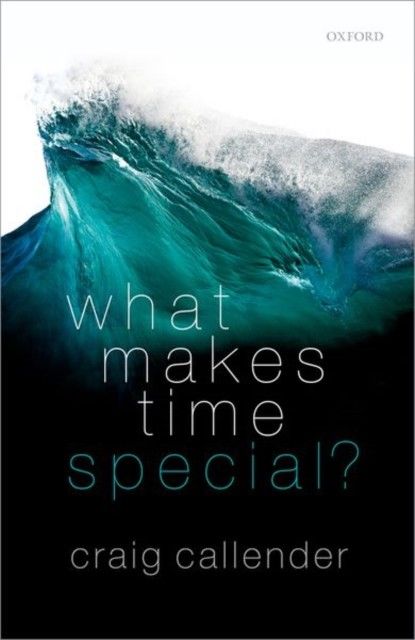Department of Philosophy Professor Wins 2018 Lakatos Award
Craig Callender, co-director of the Institute for Practical Ethics, honored for his research ‘What Makes Time Special?’
Published Date
By:
- Anthony King
Share This:
Article Content
University of California San Diego professor Craig Callender has been awarded the 2018 Lakatos Award, given annually for outstanding contributions to the philosophy of science in the form of a book. Callender’s “What Makes Time Special?” was published in 2017 and tackles the conflict between our intuitive model of time as flowing and the “static” time of fundamental physics.
“I hope the award will draw attention to the need for more interdisciplinary research on time,” Callender said, who, as honoree, will travel to the London School of Economics and Political Science to give a public lecture on his research. “Because my career started at the London School of Economics, I’m especially delighted to receive this award.”
A professor in the Department of Philosophy, Callender specializes in the foundations of physics, as well as the philosophy of science, metaphysics and environmental ethics. He is the current president of the Philosophy of Time Society and, in May 2018, organized the UC San Diego “Time and the Observer” conference with Ph.D. student Ann Thresher.
In its announcement, the Lakatos Award selection committee said Callender’s book is rated as an “ambitious and highly original contribution to the philosophy of time,” which “displays nothing short of profound insight into the way physics informs old debates about time.”
Calling it “compulsory reading,” the committee recognized “What Makes Time Special?” as research that breaks new ground, receiving special recognition for integrating the fields of physics, metaphysics and psychology.

“What Makes Time Special?” (Oxford University Press)
“What Makes Time Special?” addresses the intuitive model of flowing time and the “static” model found in physics. The model of flowing time is central to our lives, yet if it is wrong, why do we have it? Drawing upon insights from physics, mathematics, psychology and cognitive science, Callender argues that the “illusion” of time flow is a natural reaction to the perceptual and evolutionary challenges we face. Modeling time as flowing turns out to make sense, even if it’s fundamentally wrong.
Callender tries to make progress by turning the deep questions into manageable ones. “We begin asking why only the present seems real and end up answering smaller queries about the various physical, biological, and psychological facts that lead to a creature feeling stuck in the moment,” Callender writes in the book’s conclusion. “The eternalism debate may itself be eternal. While we wait for the verdict, I suggest we tackle some of the low hanging fruit dangling before us, as I’ve only scratched the surface of the philosophical applications of the burgeoning science of time.”
In 2017, Callender and sociologist John Evans launched the UC San Diego Institute for Practical Ethics. An initiative of the Division of Arts and Humanities, the institute formally engages the university in the pursuit of becoming a leading voice on the ethics and social impact of cutting-edge science. It helps to develop and promote research on ethical issues facing the public, with special emphasis on fostering deliberation among ethicists, scientists and policy makers.
Through this focus, Callender frequently leads the university’s Philosophy and the Environment course, which explores contemporary environmental issues from the perspective of philosophy: ethics, food and animals; ecology and ethics; climate, ethics and economics; and assisted migration and “rewilding,” among other topics.
Callender said his research on time isn’t so distant from his interest in practical ethics, and he is currently exploring work on the relation between time and perceived worth, or benefit.
“Many problems in practical ethics are intimately connected to not valuing future goods as much as present ones. The interaction between time biases and value is my next research project,” he said.
The Lakatos Award is made possible by an endowment from the Latsis Foundation. It is administered by an international management committee on the basis of advice from a panel of selectors who produce detailed reports on shortlisted books. University of Exeter professor Sabina Leonelli was also honored this year, for her book “Data-Centric Biology: A Philosophical Study.”
Share This:
Stay in the Know
Keep up with all the latest from UC San Diego. Subscribe to the newsletter today.



